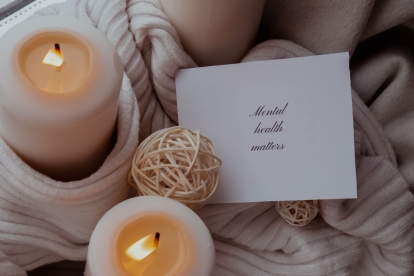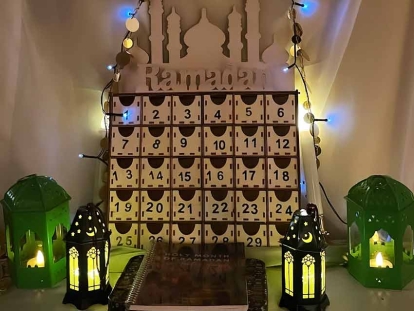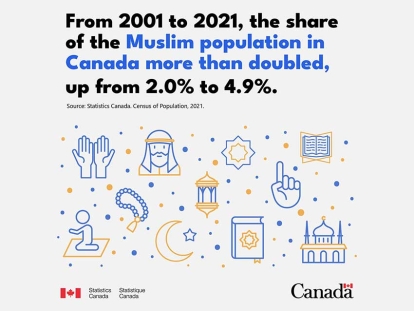 Muslim Link Voices: What I Want Muslims To Know About Mental Illness
Muslim Link Voices: What I Want Muslims To Know About Mental Illness
Aug
When I was diagnosed with my mental illness, it almost felt like a death sentence. Like the real me was dying. I kept thinking, ‘does this mean I’m crazy?’ In my community - the Muslim community - depression was an ill that -- well, it was not an illness. The myth is that such deep sadness can be a result of past wrongdoing, or maybe the patient of depression had not been praying enough, contributing to the community enough, not working hard enough, always never good enough - adding to the anxiety of a person with such a disorder. We are told that we were lazy, somehow less and ungrateful for the blessings we had.
This is because people in our community are not properly educated about mental health or mental illness.
No one can know if a girl has struggles with self-injury when she doesn’t show it. All they know is that she hides from the world in her room, never leaving - not even to come to the mosque. They don’t consider how she has changed, how sick she looks. They only say she has lost faith.
The young man who feels like there is no hope left to find something that will end or ease his suffering, goes to bed at night wishing, praying, begging God to make it stop. Eventually he doesn’t care how it has to stop. It just needs to.
Suicide is not usually a choice. It happens when a mental illness is so severe, that it takes over a person’s thoughts and feelings that trigger actions that can potentially endanger a life. Telling a person who has suicidal intentions or thoughts that they will 'go to hell’ for ‘committing’ suicide, will only exacerbate the real problem - which is the frustration, despondency and pain they feel.Suicide is not the problem. It is the symptoms and events in the suicidal person’s life and mind that are the real problem.
After all that has come to pass,
I have found, alas,
That there is no one.
We have no one.
We are surrounded yet
In this world,
We are alone
Because no one can join us in our minds
See the gashes, the bleeding
Our smiles, misleading.
No one can find in our hearts
The yearning for another start
Another chance
Because no one can see in our brains
The unwiring that’s happening
The unraveling that’s shattering
Each night unbearable
And how can I break free
If I don’t know what’s trapping me?
But if I don’t give up, at least I won’t be a tragedy.
Everyone outside
Thought she was hiding a monster
She wore a cloak
Over her heart
Held a hood over her eyes
So no one would recognise her
But when she gets home
She rips off her disguise
Because when she pulls the mask off
She looks into the mirror
She sees someone
Whose scars are better covered
She’d rather them wonder
Who she is
Then really ponder
How did she get hurt?
DId no one think to stop her
Take her hand
Let her know she had a chance
To have a different kind of beauty
But no, no
No one did.
Misunderstanding about mental illness in our communities can only be eradicated by one thing: education.
Everybody has the capacity to think and feel, and to act on those thoughts and feelings. Mental health is defined by three things: thoughts, feelings and behaviors. Most of us like to think we have full control over them. The reality? We don’t -not always. Mental health problems and illnesses can be characterized by the lack of control a person has over their thoughts and feelings.
Understanding mental health starts with trying not to be judgemental towards others’ behaviours, because we don’t know what their thoughts and feelings are. We will be less judgemental when we take on the humility of knowing that not all of us in every moment have control over our thoughts and feelings that affect our actions.
The truth is, and if we look deep into the reality of our own behaviours as people, with or without mental illness, we will find we all have moments of lost control. It is the time between those moments that we can utilize to reduce the frequency, intensity and impact of such behaviours.
For a person with a mental health problem, this may be a lot harder, but certainly not impossible. With family, health care and therapeutic support, a lot of good can be done.
To that end, I believe that all of this starts with one person. You, me, whoever reads this article, I invite you to have a look at some of the below resources. Sometimes, even if you are not a mental health advocate or professional, there is power in knowledge. Every small or substantial contribution to the cause of treating and destigmatizing mental health begins with an education. Baby steps, I like to call them. If we can teach even one in every five people something meaningful about mental health, that’s an equivalent to the one in five Canadians who will suffer from a mental illness.
Even just twenty percent more of the population having awareness is a huge step in the direction of the realization that mental health is real and it is just as important as physical health. I find this to be true, if only based on the fact that the 9th leading cause of death in Canada is intentional self-harm, i.e. suicide, after cancer, heart disease and other physical ailments. Mental illness can be lethal.
Muslims do not have mental illness because we are in a Western society and mental illness is more prevalent here - that is false - it is only more well-documented. It is not because we have a crisis of faith - even though that is true for some in our communities. It is because we are human, it is because there are things beyond our control or understanding, like the chemical reactions and hormones released in our bodies due to genetic differences, or reactions to the stressors in the environment. These are all factors that affect physical health, so why is mental health any less essential to care for?
The same self-care strategies for mental health can be applied to physical health, a well-balanced diet, avoiding caffeine, drugs, alcohol and tobacco, drinking water, exercise, rest, knowing and respecting one’s limits and keeping an eye out for changes in one’s health, in the case of mental health, with regards to habits, attitudes and moods.
Our brain is what controls all of our bodily functions, and it is time we give it the respect and care it requires to boost our immune systems, treat and prevent its ailments, and provide a sense of awareness to ourselves and maybe even others.
Here are some resources I would recommend checking out if you need help or want to learn more.
Naseeha - Muslim Youth Helpline
NISA - Muslim Women’s Helpline
Mental Health First Aid Canada
This article was produced exclusively for Muslim Link and should not be copied without prior permission from the site. For permission, please write to info@muslimlink.ca.





